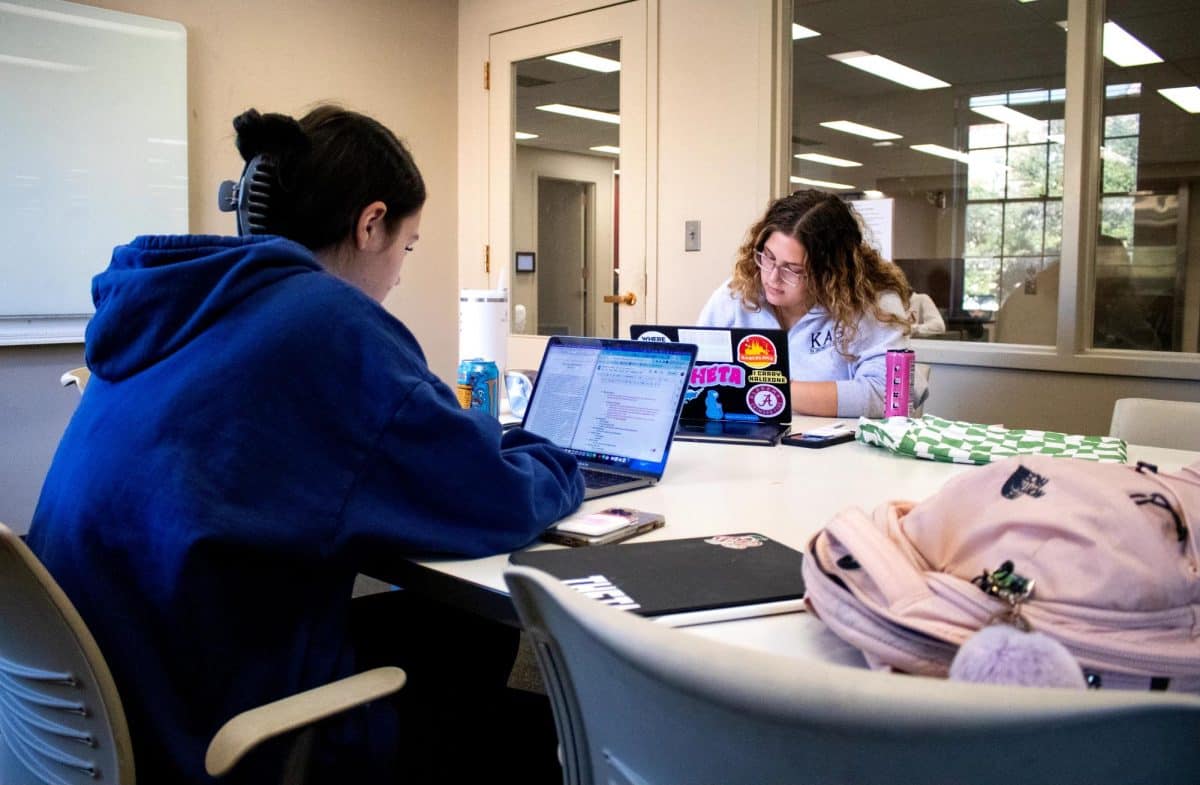Living with three other girls in my college apartment, our fridge is a sight straight out of one of those fridge restock videos on my TikTok For You Page. The pride of our fridge is the bottom shelf, almost completely stocked with an array of energy drinks.
Our normal circadian cycle dictates a period of sleepiness or decreased alertness in the afternoon, and with my classes spanning from 9:30 a.m. to 6:30 p.m. — not including extracurriculars and homework — the midday energy crash is very familiar to me. This is a collective experience among college students, leading many of us to consume energy drinks.
The National Center for Complementary and Integrative Health defines energy drinks as “products that increase energy and enhance mental alertness and physical performance.” As of 2023, an estimated 42.9% of undergraduate students consumed energy drinks on a daily basis. Whether this is to get a boost in academic performance, aid in a late-night cram session or stay awake during class, energy drinks hold a massive presence on college campuses.
However, once 11 p.m. rolls around, I find it difficult to fall asleep after consuming additional caffeine content for the day. Melatonin gummies hold a permanent place on my nightstand, their purpose being to regulate sleep habits.
It is no secret that poor sleeping habits run rampant among college students. Late nights studying and completing assignments are pieces of the mural that is the college experience. Over 70% of college students report retaining less than the recommended eight hours of sleep each night, and at least 22% of college students report regularly consuming melatonin supplements as a sleep aid.
This lands students in a never-ending and a completely manipulated cycle of supplements to manage sleep cycles. An energy drink in the morning or mid-afternoon to boost productivity leads to the need of melatonin at night to fall asleep, which inadvertently contributes to the need for caffeine the next day to combat drowsiness as a result of the increased melatonin use.
While an occasional energy drink may not have lasting effects, the continuous consumption of beverages with high caffeine content puts us at a multitude of health risks including anxiety, depression, headaches, mood swings, tooth decay and cardiovascular issues. Energy drink consumers also report higher rates of nicotine and alcohol consumption.
This can contribute to financial strain. With the average energy beverage priced at approximately $2.74, daily energy drink consumption can add up to over $1,000 a year.
Balancing assignments, extracurriculars, and studying is by far one of the leading catalysts for energy drink consumption, and universities are attempting to implement changes into their practices that may not be proactive.
Some institutions are attempting to combat the common pattern of sacrificing sleep to complete assignments by shifting deadlines. Murray State University in Murray, Kentucky, recently announced that starting during the winter term, assignment deadlines will by default be set to 5 p.m. rather than the longstanding 11:59 pm deadline. The change comes at the recommendation of the university’s Quality Enhancement Plan on student mental health committee and is intended to encourage more consistent and healthy sleep habits.
Students are not happy with this decision, as Facebook users have drawn attention to the fact that many students also work to support themselves through school, some have children and others simply want time after class to relax before working on assignments. Some go as far as to say that this implementation would be classist, considering some students have no choice but to work in order to pay tuition each semester, or that this would just force them to get less sleep the night before the assignment was due.
While Murray State’s implementation of the 5 p.m. deadline may be intended to assist students in shedding poor sleep habits, this proposed solution does not solve the issue of caffeine reliance among this age group.
However, there are ways to cut back on caffeine intake and still have energy to get through the day.
On our next trip to Target for groceries, maybe my roommates and I will spend less time in the energy drink aisle and will instead look for more natural ways of increasing our energy throughout the day. Consuming foods with a low glycemic index — whose sugars are absorbed slowly — such as proteins, fruits and vegetables, and whole grains can help us avoid the decrease in energy following consumption of highly processed foods. Additionally, exercising, limiting alcohol consumption, staying hydrated, and controlling your stress levels can also boost your energy and brain function throughout the day without the need to rely on increased caffeine intake.









